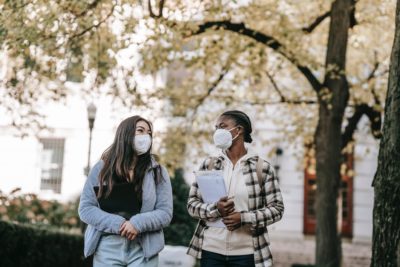 Now, finally, as the months of spring and summer come rushing on, hope arises—but uncertainty still reigns. With more than a quarter of Americans fully vaccinated against COVID-19 and literally every adult eligible to be vaccinated as of today, we look longingly for that light at the end of what has been a terrible tunnel. We glimpse it incompletely, our view partly obstructed by the swirl of unanswerable questions that surrounds us. What’s going to happen? Will we be “back to normal” in the fall? What about masks, and social distancing, and limits on gatherings—will some, or all, of those still be with us? Will we require that students, or faculty and staff, be vaccinated? What if we do, and what if we don’t?
Now, finally, as the months of spring and summer come rushing on, hope arises—but uncertainty still reigns. With more than a quarter of Americans fully vaccinated against COVID-19 and literally every adult eligible to be vaccinated as of today, we look longingly for that light at the end of what has been a terrible tunnel. We glimpse it incompletely, our view partly obstructed by the swirl of unanswerable questions that surrounds us. What’s going to happen? Will we be “back to normal” in the fall? What about masks, and social distancing, and limits on gatherings—will some, or all, of those still be with us? Will we require that students, or faculty and staff, be vaccinated? What if we do, and what if we don’t?
As if by some demonic design, we hit this latest peak of uncertainty just as we enter the last weeks of another strange semester. Remember what that time was like before we had ever heard of COVID? A head-spinning blend of jubilation and stress; everybody tired, getting through those last few weeks on grit. “Won’t this semester please end?” “When will they all leave, go home, get out of here?” But now…
That has become the key phase: “But now.” Now what? Now what, for us, and for them, our students. Remember them—the non-Zoom versions of them? Those are the people without whom we would not be here, as a thousand presidents have tediously reminded us; they are our jobs, our careers. More than that, though, they are our purpose. Yes, we would not be here without them; they are why we are here, not just how we are here.
They’ve been rough, these awful thirteen months.
This is the third semester in a row that will end like no other semester in the history of higher education. Commencement ceremonies without many guests, only a few walking six feet apart across a stage to shake hands with a dean, not many crowds hooting and hollering as each name is called. A lot of planning required even for those diminished celebrations. So now, one thing—the semester—is almost over. Another thing—the pandemic—is not, not quite, not yet.
Any other year, as the residence halls empty and the car doors slam, many of us—we educators, whatever our classification is in the persisting hierarchy of colleges and universities—would be tired, over it, done. But now, in each of us, a war rages as we cope with what is, and what we want to be. Samuel Pepys, writing in his dairy in December, 1665, about the waning of the bubonic plague in London, said:
To our great joy, the town fills apace, and shops begin to be open again. Pray God continue the plague’s decrease!
Sound familiar? But now, in our lives, optimism meets exhaustion. Emily Dickinson’s crisp lines about having been through just too much resonate as this semester ends differently than even the last two. On the precipice of the end of our energy and at the finish line from an academic year of much struggling, we might also say, as she wrote:
After great pain, a formal feeling comes –
The Nerves sit ceremonious, like Tombs –
The stiff Heart questions ‘was it He, that bore,’
And ‘Yesterday, or Centuries before’?
The Feet, mechanical, go round –
A Wooden way…
…This is the Hour of Lead –
Remembered, if outlived…
This semester will be remembered, if outlived.
Educators are resilient people—if nothing else, intrepid. Even in the midst of our fatigue and frustration with Zoom, the sadness we feel for the students who, despite being our purpose, had such a diminished experience this year, and the wrenching uncertainties that define these times, we long for the return of the familiar. They are coming back. We are coming back. They will be different; we will be different.
There have been too many losses to count, but now. Now, like Daniel Defoe, whose “Journal of the Plague Year,” published in 1722, recounted (or may have invented) recollections of the same bubonic horror in London in 1665, we might also remember what else happened.
He knew as well the stories of generosity and courage and self-sacrifice: the clergy who encouraged and comforted all who came – including the outcast Catholics, Jews, and Dissenters; the doctors who tended the poor without fees; the officials working quickly to calm panic and stave off disaster; the watchmen, the deadcart drivers, the ‘buryers’ at the pits; the parents and children and servants and friends who encouraged, comforted, tended, worked, saved, and mourned.
In the unimaginable stress of 2020/2021, there was also kindness. Yes, the country wrestled with itself, democracy was challenged, social media came unhinged, and, on campus, students sometimes behaved badly, and when they did it was often dangerous and costly. At times, these people, the ones who are the reason we are here, seemed like enemies. As frightened as human beings have ever been, they, and we, were not always at our best.
But now, look at them afresh. Look closely: in their eyes, see the possibilities, see hope, glimpse life. They are the custodians of the future. They come first.
Listen once again to Daniel Defoe, writing about the plague:
Another plague year would reconcile all these differences; a close conversing with death, or with diseases that threaten death, would scum off the gall from our tempers, remove the animosities among us, and bring us to see with differing eyes than those which we looked on things with before…tis evident death will reconcile us all; on the other side the grave we shall be all brethren again.
They are coming back. We are coming back. We will be, together, brethren again.
Richard P. Keeling, MD, Chairman, wrote this essay for the Council for the Advancement of Standards in Higher Education (CAS) and presented it at their Council of Representatives Meeting on April 19, 2021.
Keeling & Associates, LLC is a comprehensive higher education consulting and professional services firm that creates “change for learning” through its strategic planning, consultation, and executive search services across North America. Let’s create change for learning together.

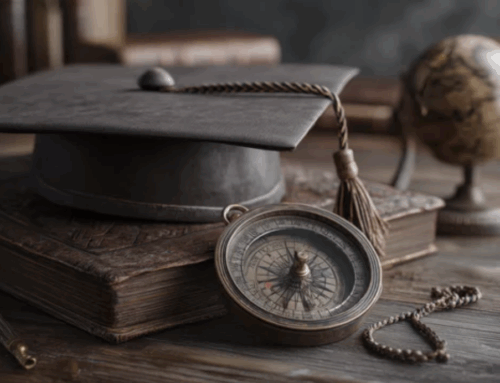
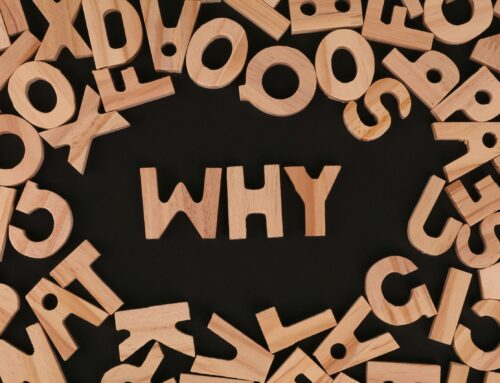
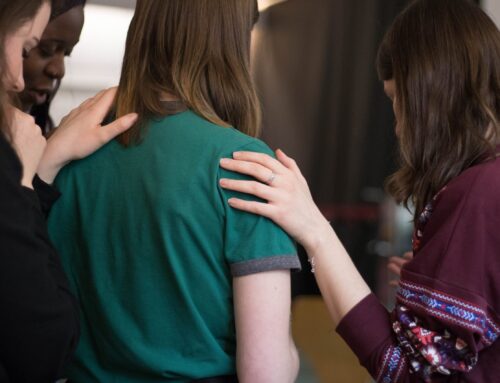
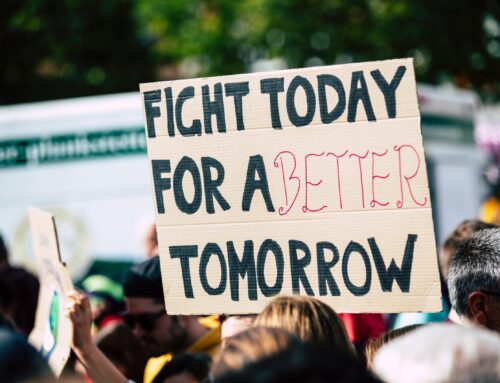
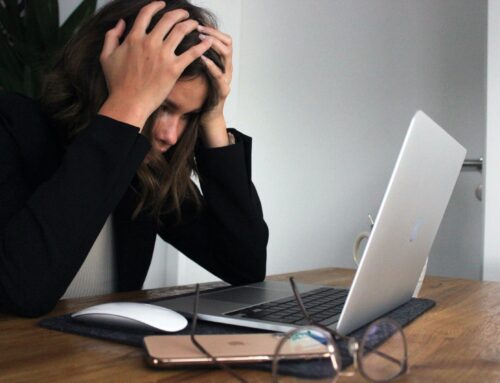
Leave A Comment